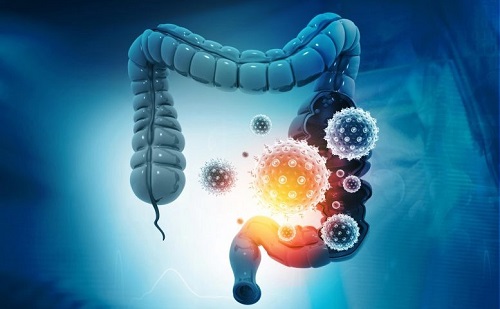
Common chemicals may permanently alter gut health, leading to lifelong disease
By: Dr Avi Verma, MD(h)
Courtsey of International University Of Health Sciences
Recent research indicates that exposure to certain environmental chemicals, even early in life, may cause lasting disruptions to gut health, potentially leading to lifelong metabolic diseases.
A study led by scientists at Penn State has found that early exposure to persistent organic pollutants (POPs), commonly referred to as ‘forever chemicals,’ can permanently alter the gut microbiome in mice. This alteration may contribute to the development of metabolic disorders like obesity and type 2 diabetes in adulthood. The findings, published in Environmental Health Perspectives, raise concerns that similar exposures during early childhood could be a factor in the increasing prevalence of these disorders among adults.
The Impact of Persistent Organic Pollutants (POPs)
The researchers focused on a specific POP known as 2,3,7,8-tetrachlorodibenzofuran (TCDF), which is a byproduct of industrial activities such as waste incineration, metal production, and the burning of fossil fuels and wood. TCDF is a chemical that accumulates in the food chain, with humans primarily exposed through high-fat foods like meat, dairy, and some fish. Infants can also be exposed through breast milk.
“POPs are widespread in the environment, and nearly all living organisms have been exposed to them,” explained Dr. Andrew Patterson, lead researcher and professor at Penn State. “The harmful health effects of these chemicals are well documented, including birth defects and cancer. Our study is the first to suggest that early exposure to a particular POP, TCDF, also disrupts the gut microbiome and may be linked to metabolic diseases later in life.”
Methodology and Key Findings
To understand the effects of TCDF, the researchers conducted experiments on two groups of mice: one treated with TCDF and a control group that received no treatment. The mice were given a dose of TCDF or a placebo for five days. Although the dose was higher than what humans typically encounter, it wasn’t high enough to cause immediate toxicity.
The researchers then analyzed the gut microbiomes of the mice and looked at various health indicators, such as body weight, glucose tolerance, liver triglyceride levels, and other markers of metabolic disease. These data were collected immediately after the treatment and again three months later, corresponding to the equivalent of infancy and young adulthood in humans.
“We found that early exposure to TCDF permanently disrupted the gut microbiomes of the mice,” said Dr. Yuan Tian, lead author of the study. “These mice also exhibited higher body weight and glucose intolerance by the age of four months.”
Further Investigation and Implications
To delve deeper into how TCDF impacts gut health, the team performed microbiome transplants, transferring gut bacteria from TCDF-exposed mice to mice without microbiomes. The recipient mice developed metabolic disorders, indicating that the disrupted microbiome caused by TCDF exposure could indeed lead to such diseases.
“These findings suggest that early-life exposure to TCDF might cause gut microbiome disturbances that lead to health issues later in life, even after the chemical has left the body,” Dr. Tian added.
One significant discovery was the reduction of a particular bacterium, Akkermansia muciniphila, in the gut microbiome of TCDF-exposed mice. This bacterium, commonly found in the human gut, is vital for maintaining overall gut health.
To explore whether restoring Akkermansia muciniphila could reverse the negative effects of TCDF exposure, the researchers administered it as a probiotic to the affected mice. The treatment successfully returned the gut microbiome to a healthy state.
“Our research suggests that exposure to these toxic chemicals can affect the gut microbiome and play a crucial role in determining health outcomes,” Dr. Patterson concluded. “With further research, we might be able to restore a person’s microbiome to its optimal state through the use of prebiotics and probiotics.”
This research highlights the importance of understanding how early-life exposure to environmental pollutants can have long-term health consequences and underscores the need for further studies to explore potential interventions.
Contact Information
For prospective students interested in joining a vibrant and supportive learning community that offers flexible and innovative healthcare education, IUHS is here to guide you on your journey.
Visit the International University of Health Sciences website at www.iuhs.edu or contact the admissions office at 1.877.487.6012
(Toll-Free), 1.204.487.6012 (Direct), or 869.465.2338 (Campus) for more information on how to apply and begin your path toward a rewarding career in healthcare.